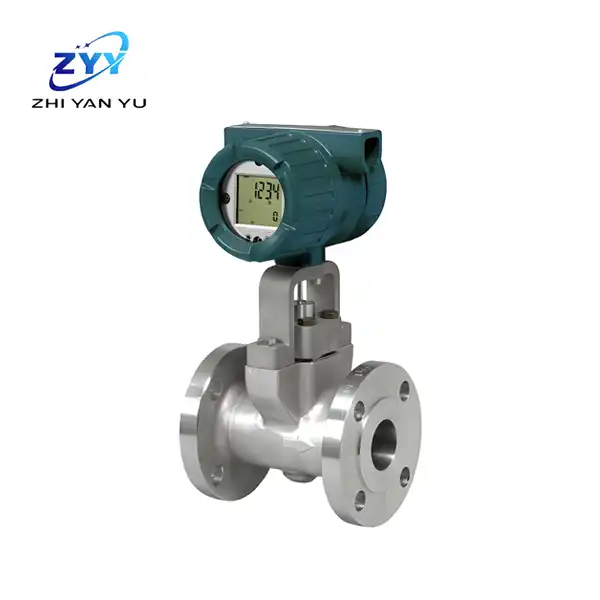- English
- French
- German
- Portuguese
- Spanish
- Russian
- Japanese
- Korean
- Arabic
- Greek
- German
- Turkish
- Italian
- Danish
- Romanian
- Indonesian
- Czech
- Afrikaans
- Swedish
- Polish
- Basque
- Catalan
- Esperanto
- Hindi
- Lao
- Albanian
- Amharic
- Armenian
- Azerbaijani
- Belarusian
- Bengali
- Bosnian
- Bulgarian
- Cebuano
- Chichewa
- Corsican
- Croatian
- Dutch
- Estonian
- Filipino
- Finnish
- Frisian
- Galician
- Georgian
- Gujarati
- Haitian
- Hausa
- Hawaiian
- Hebrew
- Hmong
- Hungarian
- Icelandic
- Igbo
- Javanese
- Kannada
- Kazakh
- Khmer
- Kurdish
- Kyrgyz
- Latin
- Latvian
- Lithuanian
- Luxembou..
- Macedonian
- Malagasy
- Malay
- Malayalam
- Maltese
- Maori
- Marathi
- Mongolian
- Burmese
- Nepali
- Norwegian
- Pashto
- Persian
- Punjabi
- Serbian
- Sesotho
- Sinhala
- Slovak
- Slovenian
- Somali
- Samoan
- Scots Gaelic
- Shona
- Sindhi
- Sundanese
- Swahili
- Tajik
- Tamil
- Telugu
- Thai
- Ukrainian
- Urdu
- Uzbek
- Vietnamese
- Welsh
- Xhosa
- Yiddish
- Yoruba
- Zulu
How Accurate is Yokogawa Mass Flow Meter?
2024-07-09 17:09:43
In a variety of industries, mass flow meters are essential tools for precise fluid and gas flow rate measurement. Among the numerous brands available, Yokogawa is well-known for its dependability and accuracy. The exactness of Yokogawa mass stream meters and the different elements that impact their exhibition and constancy are analyzed in this article.
1. What Factors Influence the Accuracy of Yokogawa Mass Flow Meters?
Understanding Mass Flow Meter Accuracy
The accuracy of a mass flow meter is determined by its ability to measure the actual flow rate without significant error. This includes factors like precision, repeatability, and the ability to function under different operating conditions.
Key Factors Affecting Accuracy
A number of factors affect the accuracy of Yokogawa mass flow meters:
Calibration: The stream meter will always give accurate readings if the settings are correct. Yokogawa's alignment strategies aim to minimize errors while maintaining high precision.
Details regarding the liquid: Accuracy can be affected by the thickness, temperature, and strain of the liquid. Yokogawa mass stream meters are made to consider these varieties to keep up with precision.
Installation Conditions: The installation environment, including the position of the flow meter and any obstructions, can affect accuracy. To ensure flawless installation and performance, Yokogawa provides thorough instructions.
Maintenance: Typical alignment and backing should be used to maintain the accuracy of the stream meter after some time has passed. Customers of Yokogawa can get comprehensive services for maintaining their devices.
Yokogawa’s Technological Advantages
To improve the precision of their mass flow meters, Yokogawa makes use of cutting-edge manufacturing methods and technologies. These are some:
cutting-edge sensor technology: high-precision sensors that can deliver accurate data even in harsh environments.
Signal Digitization: works on the constancy and precision of the estimations by diminishing commotion and making acclimations to consider various factors that could cause mistakes.
An enduring foundation: designed to withstand the harsh industrial setting and guarantee long-term accuracy and dependability.
2. How Does Yokogawa Mass Flow Meter Compare with Other Brands?
Comparison Criteria
When comparing Yokogawa mass flow meters with those of other brands, several criteria are considered, including accuracy, reliability, ease of use, and overall performance.
Accuracy and Precision
Mass flow meters made by Yokogawa are well-known for their high level of precision. Emerson, Siemens, and Endress+Hauser, three of the most well-known manufacturers, are frequently compared to them. Yokogawa frequently receives high marks in user reviews and independent tests for the following:
Accuracy of Measurement: delivers frequently exact measurements with little room for error.
Repeatability: ensures consistent performance across multiple measurements due to its repeatability.
Range: capable of precisely determining flow rates across a wide range of fluid types and conditions.
User Experience and Ease of Use
Yokogawa also excels in terms of user experience:
User-Friendly Interface: Easy to operate and configure, with intuitive interfaces and comprehensive manuals.
Installation and Maintenance: Simplified installation process and minimal maintenance requirements compared to some competitors.
Performance Under Challenging Conditions
Yokogawa mass flow meters are designed to perform reliably under various challenging conditions, including high temperatures, pressures, and corrosive environments. This robustness sets them apart from many other brands that may struggle under similar conditions.
3. What Applications Benefit from the Use of Yokogawa Mass Flow Meters?
Industrial Applications
Due to their accuracy and dependability, Yokogawa mass flow meters are utilized extensively in numerous industrial applications. Important sectors include:
Gas and oil: For exact estimation of hydrocarbon stream in pipelines and processing plants.
Chemical Treatment: in production processes, ensures the precise measurement of reactive and non-reactive chemicals.
Pharmaceuticals: essential for maintaining consistent and high-quality flow measurements in pharmaceutical production.
Environmental Monitoring
Yokogawa mass flow meters are also utilized in environmental monitoring applications:
Air Quality Monitoring: Used to measure emissions and air quality in various settings, ensuring compliance with environmental regulations.
Water Treatment: Essential for accurate measurement of water flow in treatment plants, helping to manage resources efficiently.
Food and Beverage Industry
In the food and beverage industry, the accuracy and reliability of Yokogawa mass flow meters play a crucial role in:
Ingredient Measurement: Ensuring precise measurement of ingredients, which is critical for maintaining product quality and consistency.
Process Control: Enhances process control, leading to improved efficiency and reduced waste.
4. Are There Any Common Issues with Yokogawa Mass Flow Meters?
Understanding Potential Issues
Although Yokogawa mass flow meters are generally dependable, users may encounter a few common issues. These are some:
Drift in Calibration: The measurement accuracy can be impacted by calibration drift over time. This problem can be mitigated by performing calibration and maintenance on a regular basis.
Sensor Fouling: Sensors can become clogged with contaminants or particulates in high concentrations, resulting in inaccurate readings. This can be avoided by following proper cleaning and filtration procedures.
Interference with Electricity: The flow meter's performance can occasionally be affected by electromagnetic interference from nearby equipment. Legitimate protecting and establishing can limit these impacts.
Troubleshooting and Solutions
Yokogawa offers exhaustive help and investigating assets to resolve these issues:
Continual Maintenance: Sticking to suggested upkeep plans forestalls issues like adjustment float and sensor fouling.
Specialized Help: access to Yokogawa's technical support staff for troubleshooting and issue resolution.
Resources and instruction: Offering preparing programs and nitty gritty documentation to help clients comprehend and relieve normal issues.
Yokogawa mass flow meters are, in conclusion, highly accurate and dependable instruments that are utilized in a variety of industries. Their cutting edge innovation, vigorous plan, and far reaching support pursue them a favored decision for exact stream estimation. By understanding the variables that impact exactness and following prescribed procedures for establishment and upkeep, clients can amplify the exhibition and unwavering quality of their Yokogawa mass stream meters.
References
Yokogawa Corporation. (2024). Mass Flow Meters: Features and Benefits
Emerson Electric Co. (2024). Comparing Mass Flow Meters
Siemens AG. (2024). Mass Flow Meter Technology
Endress+Hauser. (2024). Flow Measurement Solutions
Chemical Engineering. (2024). Choosing the Right Mass Flow Meter
Control Engineering. (2024). Mass Flow Meter Accuracy
Flow Control Network. (2024). Mass Flow Meter Comparison
Industrial Automation. (2024). Flow Meter Selection Guide
Environmental Science & Technology. (2024). Applications of Mass Flow Meters in Environmental Monitoring
Food and Beverage Processing. (2024). Flow Measurement in the Food Industry
For more information, feel free to contact us at lm@zyyinstrument.com.
YOU MAY LIKE
Rosemount Micro Motion Coriolis Mass Flow Meter
Self-Verification: Features Smart Meter Verification™ for complete, traceable calibration checks.
Calibration Facility: Supported by a world-leading ISO/IEC 17025 calibration facility for high performance.
Smart Sensor Design: Reduces the need for onsite zero calibration.

Yokogawa Mass Flow Meter
Calculate the concentration of miscible or immiscible fluids.
Calculate the fluid viscosity of a Newtonian liquid.
Calculate the energy calorific value of gas measurements.
